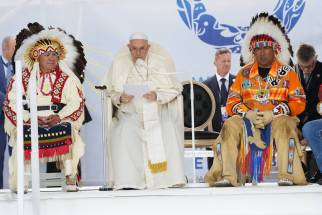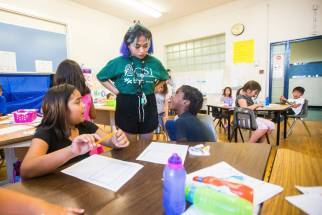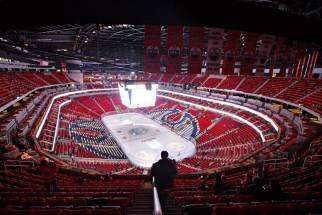Hurt remains but papal apology salve for Manitoba contingent
Read this article for free:
or
Already have an account? Log in here »
To continue reading, please subscribe:
Monthly Digital Subscription
$0 for the first 4 weeks*
- Enjoy unlimited reading on winnipegfreepress.com
- Read the E-Edition, our digital replica newspaper
- Access News Break, our award-winning app
- Play interactive puzzles
*No charge for 4 weeks then price increases to the regular rate of $19.00 plus GST every four weeks. Offer available to new and qualified returning subscribers only. Cancel any time.
Monthly Digital Subscription
$4.75/week*
- Enjoy unlimited reading on winnipegfreepress.com
- Read the E-Edition, our digital replica newspaper
- Access News Break, our award-winning app
- Play interactive puzzles
*Billed as $19 plus GST every four weeks. Cancel any time.
To continue reading, please subscribe:
Add Free Press access to your Brandon Sun subscription for only an additional
$1 for the first 4 weeks*
*Your next subscription payment will increase by $1.00 and you will be charged $16.99 plus GST for four weeks. After four weeks, your payment will increase to $23.99 plus GST every four weeks.
Read unlimited articles for free today:
or
Already have an account? Log in here »
Hey there, time traveller!
This article was published 25/07/2022 (1235 days ago), so information in it may no longer be current.
EDMONTON — Emotional, powerful and amazing were some of the words used by Manitoba Indigenous people who travelled to hear Pope Francis deliver an apology for the Roman Catholic Church’s involvement in Canada’s residential school system.
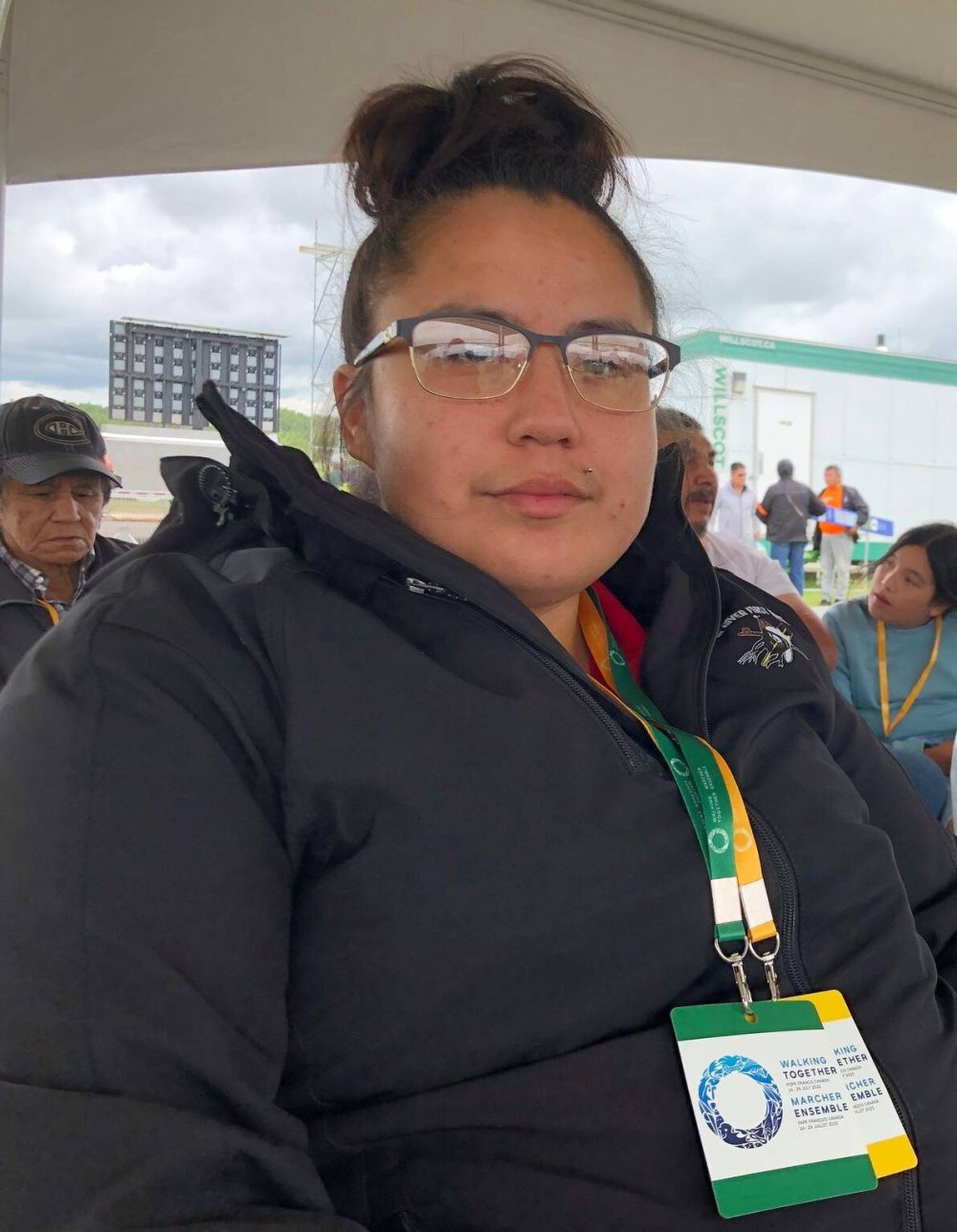
“It felt amazing,” Shania Franklin of Poplar River First Nation said of Monday’s event at the former site of the Ermineskin Indian Residential School in Maskwacis, Alta.
“I felt the energy of my people in my heart today.”
What was especially significant for Franklin was hearing the Pope praise Indigenous people and their culture.
“I felt recognized as a person, a human,” she said. “I’m not excluded anymore.”
For Cynthia Bunn, a residential school survivor from Sagkeeng, hearing the apology spoke aloud was “very emotional… It’s been a long time coming.”
She also felt hopeful about how Indigenous and non-Indigenous people might come together to make the Pope’s words about reconciliation “a reality.”
It won’t be easy since so many are “still hurting,” Bunn said, adding the experience with the Pope brought back some hard memories.
“I can never forget what happened,” she said of her four years in a residential school.

For Bunn, it was significant the Pope apologized for “things done to us by nuns and priests.” Now, she said, “it’s time for action.”
Wilfred Courchene, also of Sagkeeng, didn’t attend residential school, but his wife did. She died in March.
“She had a tough time,” he said Monday, noting she could see her family home from her dormitory at the old Fort Alexander school but wasn’t allowed to visit.
Courchene came to Alberta to hear the Pope in her honour: “I’m sorry she couldn’t be here to hear the apology, but she’s here in spirit.”
JOHN LONGHURST / WINNIPEG FREE PRESS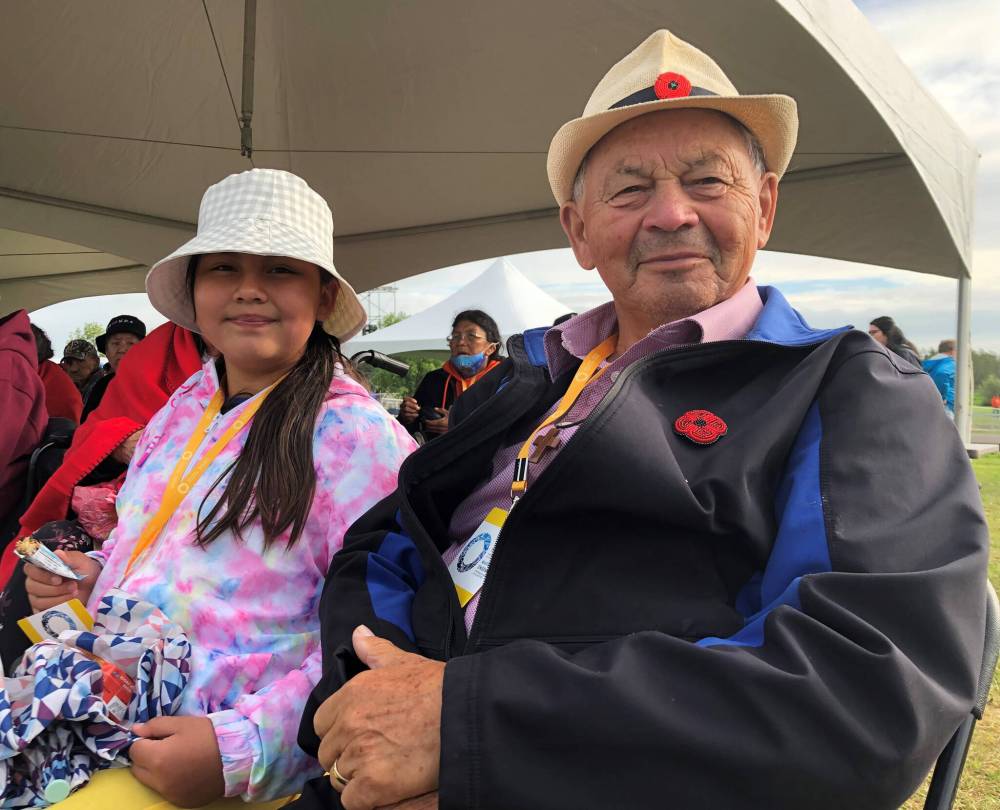
For Norman Meade, elder in residence at the University of Manitoba, the papal apology is a chance to start anew.
“We elders need to tell the youth: this is time to go forward, not just look back,” he said. “The past is too painful a place to stay.
“We have to break the cycle, stop the anger. We need to live into the future with optimism.”
This won’t be easy, and it will take time, understanding and compassion, Meade said, along with traditional teachings, practices and ceremonies.
As for the Pope’s apology itself, “it was clear and from his heart,” Meade said, adding he appreciated the effort the ailing pontiff made to come to Canada. “That means so much.”
Carla Bruyer of Sagkeeng, too, appreciated the apology — but regretted Pope Francis didn’t specifically mention sexual abuse when he apologized for what was done to children in the schools.
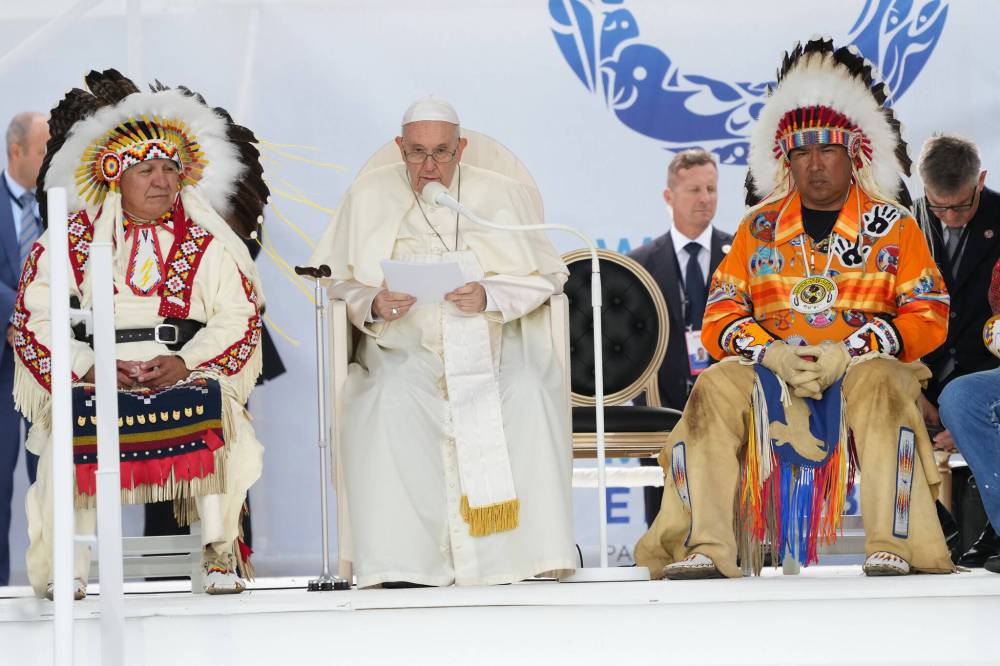
“Sexual abuse is what has had the most devastating impact on our communities,” she said. “We are still feeling the effects today… It took the innocence of the children, cloaked in religion.”
Salina Bruyer, also of Sagkeeng, attended residential school for 11 years. For her, the apology was “so powerful” — and so was being at the event.
“I’ve never been in a place with so many Indigenous people,” she said. “I felt so proud. My people are strong, we are resilient.”
The apology will help her put the memories of residential school in the past. “It brings back such bad memories,” she said.
Janet Bruyer of Sagkeeng was taken to a residential school at three. For her, Monday’s apology is a “good place to start to make things better.”
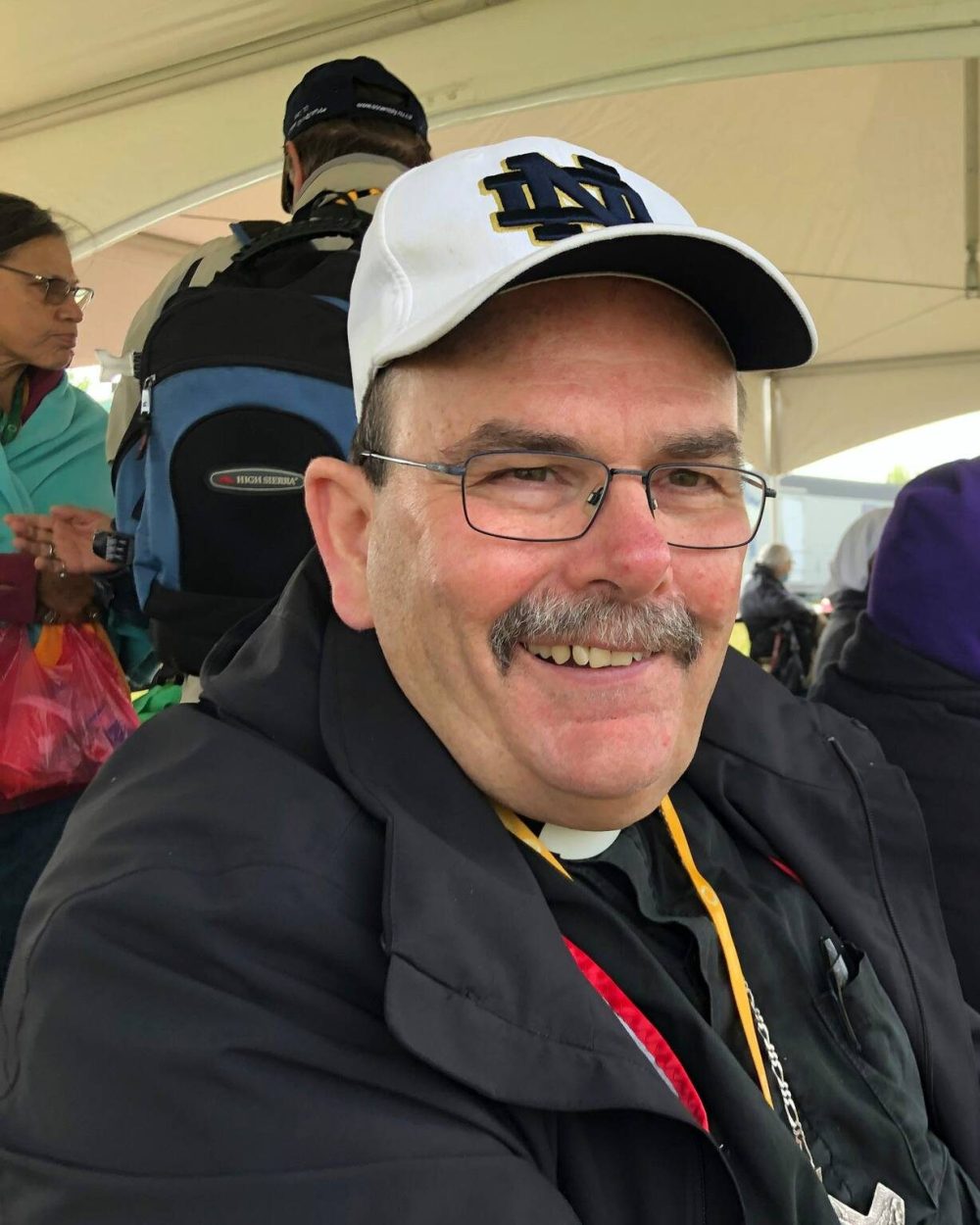
Meantime, Saint Boniface Archbishop Albert LeGatt was pleased to hear the Pope go beyond saying sorry for the actions of individuals who worked at the schools.
“He offered a profound expression of sorrow for how so many Christians have accepted a colonizing spirit that culminated in the residential school system, he said.
That was a “clear invitation to every Catholic to now respond to what remains of that colonizing spirit today.”
LeGatt said he also appreciated how the Pope praised “all things Indigenous,” and for how he accepted the gift of a headdress, putting it on in front of the crowd.
For the archbishop, it was a “powerful symbol” of the apology and the meaning of the event.
faith@freepress.my.ca
The Free Press is committed to covering faith in Manitoba. If you appreciate that coverage, help us do more! Your contribution of $10, $25 or more will allow us to deepen our reporting about faith in the province. Thanks! BECOME A FAITH JOURNALISM SUPPORTER

John Longhurst has been writing for Winnipeg's faith pages since 2003. He also writes for Religion News Service in the U.S., and blogs about the media, marketing and communications at Making the News.
Our newsroom depends on a growing audience of readers to power our journalism. If you are not a paid reader, please consider becoming a subscriber.
Our newsroom depends on its audience of readers to power our journalism. Thank you for your support.
The Free Press acknowledges the financial support it receives from members of the city’s faith community, which makes our coverage of religion possible.






